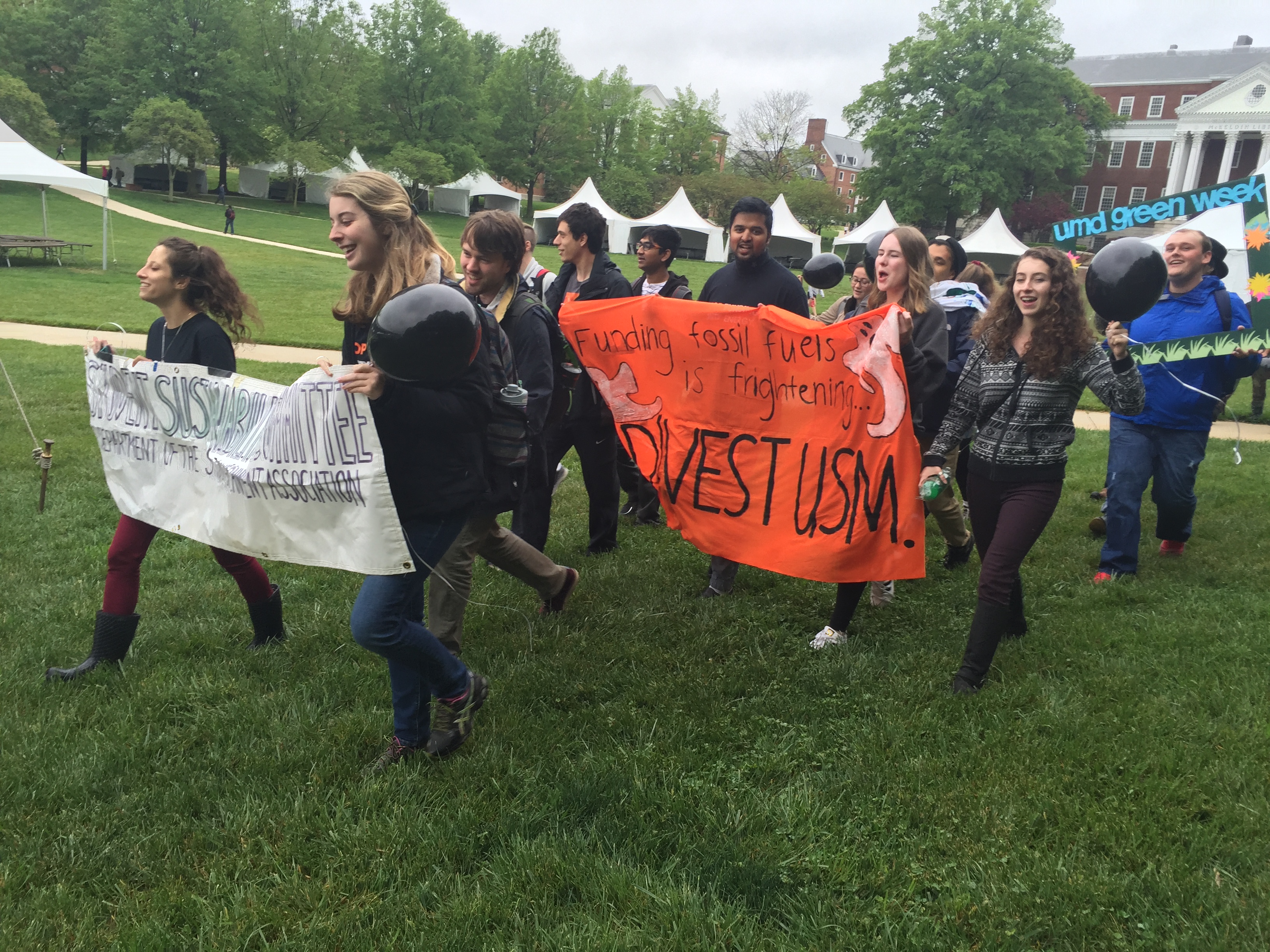The University System of Maryland Foundation announced Tuesday it would no longer directly invest in coal, natural gas and oil companies, marking a victory for University of Maryland students who have been at the forefront of a clear energy crusade.
The foundation, which manages the system’s $1 billion endowment, pledged to sign the United Nations Principles for Responsible Investment; appointed Chris Ingram as the first senior sustainability and investment analyst to continue to seek clean investment opportunities; and will join the International Endowments Network, which helps universities and other tax-exempt organizations invest. These announcements came after the foundation’s ad hoc committee for socially responsible investing made formal recommendations May 27 to divest from fossil fuels.
“We listened to them and they listened to us, and that was critical,” said Pamela Purcell, the foundation’s finance vice president and chief financial officer.
Moving forward, the foundation will not directly invest in any Carbon Underground 200 companies, which are the 100 public coal and 100 public gas and oil companies with the largest potential carbon emissions.
“The system is recognizing the threat of climate change, [and we] wanted to work with the students to find ways … to mitigate our exposure to those companies that might be known as contributing the most to dirty energy,” the foundation’s CEO and President Leonard Raley said.
While the foundation committed to no future direct investments in these companies, fund managers control indirect investments, Purcell noted.
“We entrusted this money to fund managers, [and] the fund managers have complete control over how they invest,” Purcell said. “That’s why we can’t cause [investments] to go to zero tomorrow.”
The foundation emphasized to fund managers that if faced with a decision between two investment opportunities, the fund should invest in clean energy sources as long as it is financially prudent, Raley said.
The decision was a culmination of ongoing collaboration with environmentally conscious university students.
Students from this university joined forces with students from Towson University and Salisbury University to petition the foundation for a divestment feasibility study in 2013, said Maya Spaur, this university’s Student Government Association sustainability director. Since then, different organizations within this university’s student body have continued to push for divestment through campus events and meetings with foundation executives.
This past school year, the SGA unanimously voted in November to pass a bill recommending this university divest from fossil fuel companies and met with the foundation in April.
“It was truly a good collaborative partnership,” Raley said. “Our board members took it very seriously. I’m not sure that we would have dedicated that kind of time to the topic had the students not brought it to our attention in the capacity [and] the amount that they did.”
Junior Willem Klajbor said the SGA’s Student Sustainability Committee and the foundation’s representatives were able to meet and work together respectfully in achieving this goal.
“As it became more clear to the USMF what we were asking for, we saw more of an openness to have that dialogue,” the economics and environmental science and policy major said.
The foundation’s decision was a long time coming, but Spaur attributed the victory to the students’ resilience.
“This has been a three-year movement,” the senior environmental science and technology and government and politics major said. “We kept saying, ‘We’re not going to let up. We’re not going to let this go.'”
Brittany Cheng contributed to this report.



